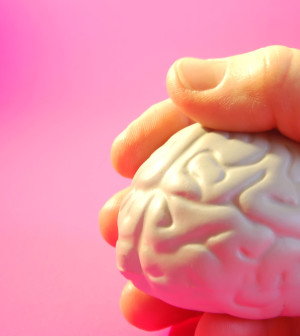- Could Your Grocery Store Meat Be Causing Recurring UTIs?
- Are You Making This Expensive Thermostat Error This Winter?
- Recognizing the Signs of Hypothyroidism
- 10 Strategies to Overcome Insomnia
- Could Artificial Sweeteners Be Aging the Brain Faster?
- Techniques for Soothing Your Nervous System
- Does the Water in Your House Smell Funny? Here’s Why
- Can a Daily Dose of Apple Cider Vinegar Actually Aid Weight Loss?
- 6 Health Beverages That Can Actually Spike Your Blood Sugar
- Treatment Options for Social Anxiety Disorder
Brain Inflammation a Hallmark of Autism, Study Shows


Brain inflammation, triggered by an overactive immune system, is common among people with autism, a new study finds.
However, this inflammation does not cause the developmental disorder. Rather, it’s a response to the different factors that can trigger autism, the researchers stressed.
Their findings are based on autopsies performed on 72 brains of people with and without autism. In the brains of those who had autism when they were alive, a certain type of cell had its genes for inflammation permanently turned on.
“There are many different ways of getting autism, but we found that they all have the same downstream effect,” study author Dan Arking, an associate professor at the Institute for Genetic Medicine at Johns Hopkins University School of Medicine in Baltimore, said in a university news release.
“What we don’t know is whether this immune response is making things better in the short term and worse in the long term,” he added.
The next step is to find out whether treating this inflammation would reduce symptoms of autism, Arking said.
The study was published online Dec. 10 in the journal Nature Communications.
“This type of inflammation is not well understood, but it highlights the lack of current understanding about how innate immunity controls neural circuits,” study co-author Andrew West, an associate professor of neurology at the University of Alabama at Birmingham, said in the news release.
More information
The U.S. National Institute of Neurological Disorders and Stroke has more about autism.
Source: HealthDay
Copyright © 2026 HealthDay. All rights reserved.










